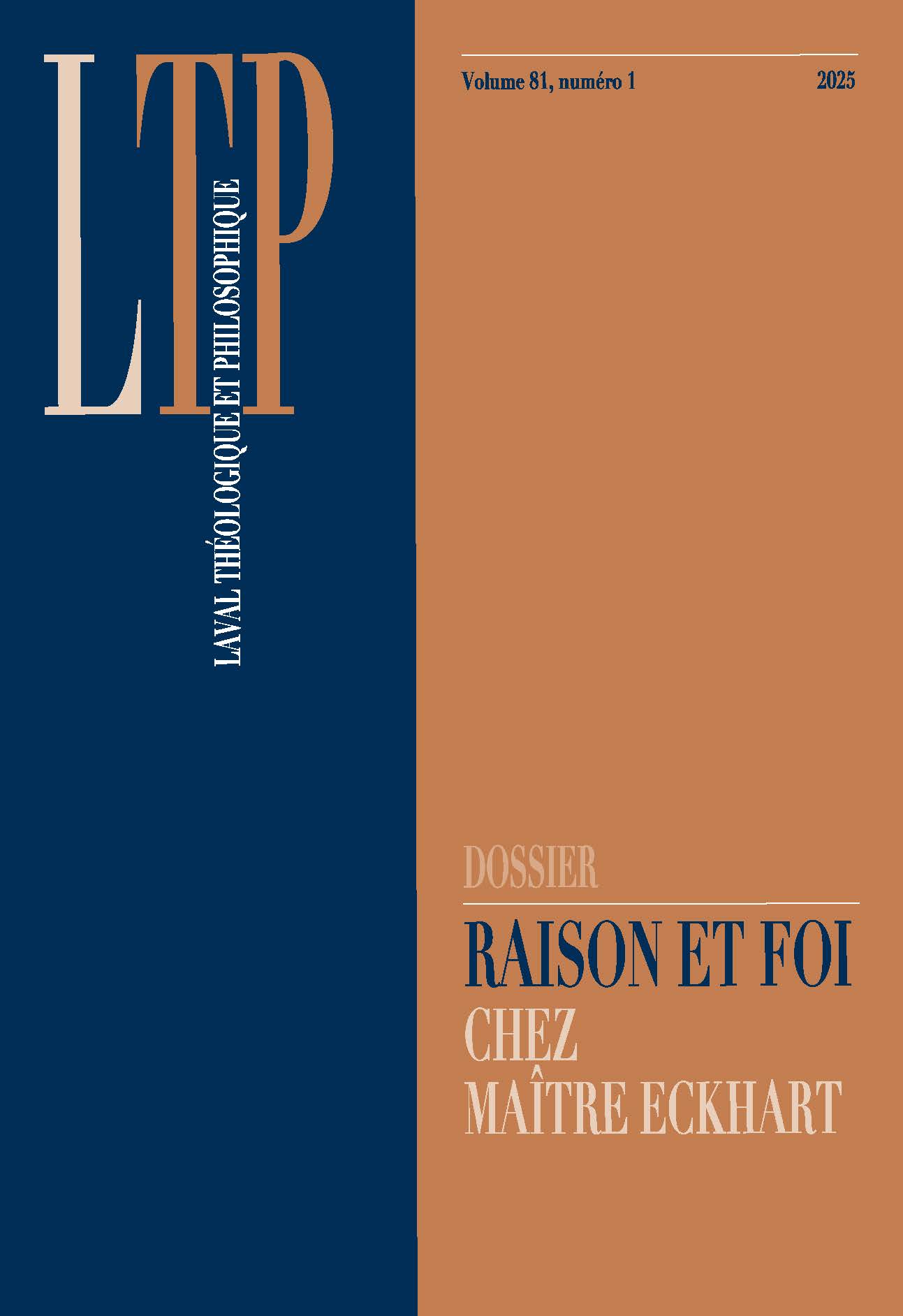Liminaire
Abstract
In his book Raison et foi (2003), Alain de Libera argues for an alternative to Etienne Gilson's schema, which John Paul II endorsed in the encyclical Fides et ratio: a gradual rise towards the thought of Thomas Aquinas followed by a period of decadence. This vision of scholasticism, too monolithic, does not take into account the originality of the Colonnese school. In the middle of the thirteenth century, Albert the Great decided to integrate Greek-Arabic peripatetic philosophy as a way to access the beatitude announced by Christianity. Master Eckhart inherited this innovation and made it the backbone of his articulation between philosophy and theology. He announces it in a programmatic Latin writing: the sermon for St Augustine. It is not metaphysics but ethics that becomes for him the royal road to theology: ethica sive theologia. Now, if ethics is identified with theology as a speculative research, it is also confirmed by the practical approach: ethica sive practica. In this way, action and contemplation are brought together. It is in the very exercise of the virtues that the goal of intellectual philosophy is achieved. God is not the object of a theoretical vision, but the primary reason for all things. This is how Master Eckhart dares to translate the first verse of the Johannine prologue: "In principio erat logos, ratio scilicet" (In Ioh. §32). God is experienced as the background from which all things emanate, but also all human acts, including intellection. A single Middle High German word unites the two Latin terms Ratio and Causa: grunt (Grund). This means that as a producer and an operator, reason is removed from the purely notional field. It concerns both the intellect and the will. By opting for this path, Eckhart thwarts the opposition between reason and faith, as two parallel paths of knowledge, one natural and the other supernatural. But the question then arises: is this an avoidance strategy or has Eckhart proposed another way of hearing what faith means? This is a problem that deserves to be addressed. The proposed method is to exhume the texts where Eckhart speaks of faith, or better still of faith and reason, to try to detect his specific contribution on this delicate theme. Finally, the aim of the exercise is heuristic, as much as hermeneutic. It consists in discovering whether the Eckhartian interpretation is outdated, historically dated, or whether it is still operative, because it is part of life itself. In the latter case, could it not bring some fresh air into the middle of a conceptual impasse that is not very conducive to the reception of Christianity in the present age?

